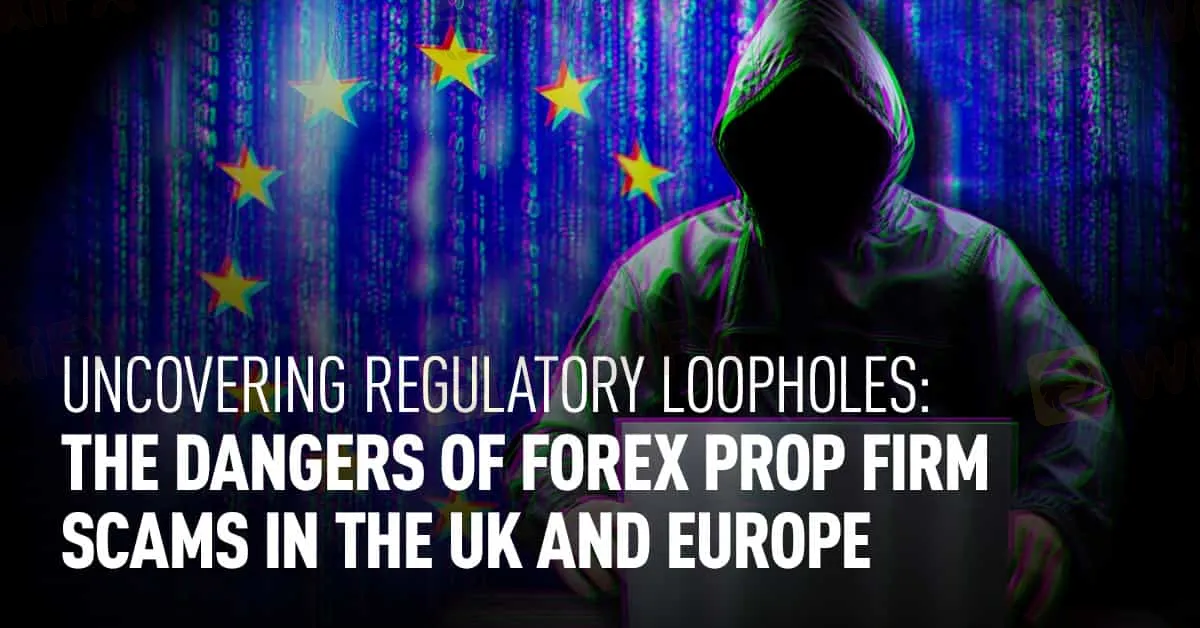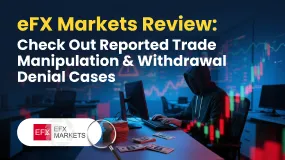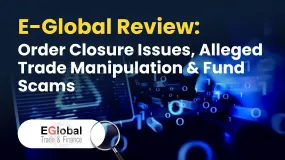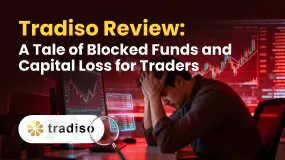Abstract:In the complex world of foreign exchange trading, the allure of substantial profits often leads traders to seek out opportunities with forex prop firms. These entities, which provide capital and leverage to traders in exchange for a share of profits, can offer an enticing pathway to financial success. However, beneath the surface lies a shadowy realm where regulatory loopholes and lax oversight create fertile ground for scams and fraudulent activities.

In the complex world of foreign exchange trading, the allure of substantial profits often leads traders to seek out opportunities with forex prop firms. These entities, which provide capital and leverage to traders in exchange for a share of profits, can offer an enticing pathway to financial success. However, beneath the surface lies a shadowy realm where regulatory loopholes and lax oversight create fertile ground for scams and fraudulent activities.
One of the pressing issues in the forex industry, particularly in the UK and Europe, is the exploitation of regulatory gaps by unscrupulous prop firms. These firms often operate on the fringes of legality, taking advantage of insufficient oversight to engage in practices that harm unsuspecting traders.
Regulatory Loopholes and Oversight: A Breeding Ground for Fraud
The regulatory landscape governing forex prop firms in the UK and Europe is intricate, with various authorities responsible for oversight. However, despite efforts to enforce compliance, regulatory gaps persist, leaving room for exploitation. Some firms exploit these gaps by operating without proper licenses or registration, making it difficult for authorities to track and hold them accountable for their actions.
One of the significant challenges is the lack of harmonization among regulatory bodies across different jurisdictions. While some countries have stringent regulations in place, others have comparatively lenient frameworks, creating disparities that can be exploited by fraudulent operators.
The Case of WikiFX: Shedding Light on Dubious Practices
One platform that has garnered attention in the forex community is WikiFX. Marketed as a comprehensive database of forex brokers and prop firms, WikiFX claims to provide traders with valuable information to make informed decisions. However, recent investigations have revealed concerning allegations regarding the platform's integrity and reliability.
According to reports, WikiFX has been accused of hosting unverified or potentially biased reviews of brokers and prop firms, misleading traders into believing they are dealing with reputable entities. Additionally, there are allegations that WikiFX may receive compensation from brokers for positive reviews or preferential treatment, raising questions about the platform's impartiality.
Where to Find WikiFX and How They Can Help
Despite the controversies surrounding WikiFX, the platform remains accessible to traders seeking information about forex brokers and prop firms. Traders can visit the WikiFX website or download the mobile app to access its database of brokers, along with reviews, ratings, and other relevant information.
While WikiFX claims to empower traders by providing transparency and insights into the forex industry, caution is advised when relying solely on its resources. Traders should conduct thorough due diligence and consider multiple sources of information before making any decisions regarding broker selection or engaging with prop firms.
In conclusion, the prevalence of forex prop firm scams in the UK and Europe underscores the need for stronger regulatory oversight and vigilance within the industry. Traders must remain vigilant, educate themselves about potential risks, and exercise caution when dealing with forex entities. Platforms like WikiFX can serve as a resource for information, but traders should approach them with a critical eye and verify information independently to protect themselves from falling victim to scams.










